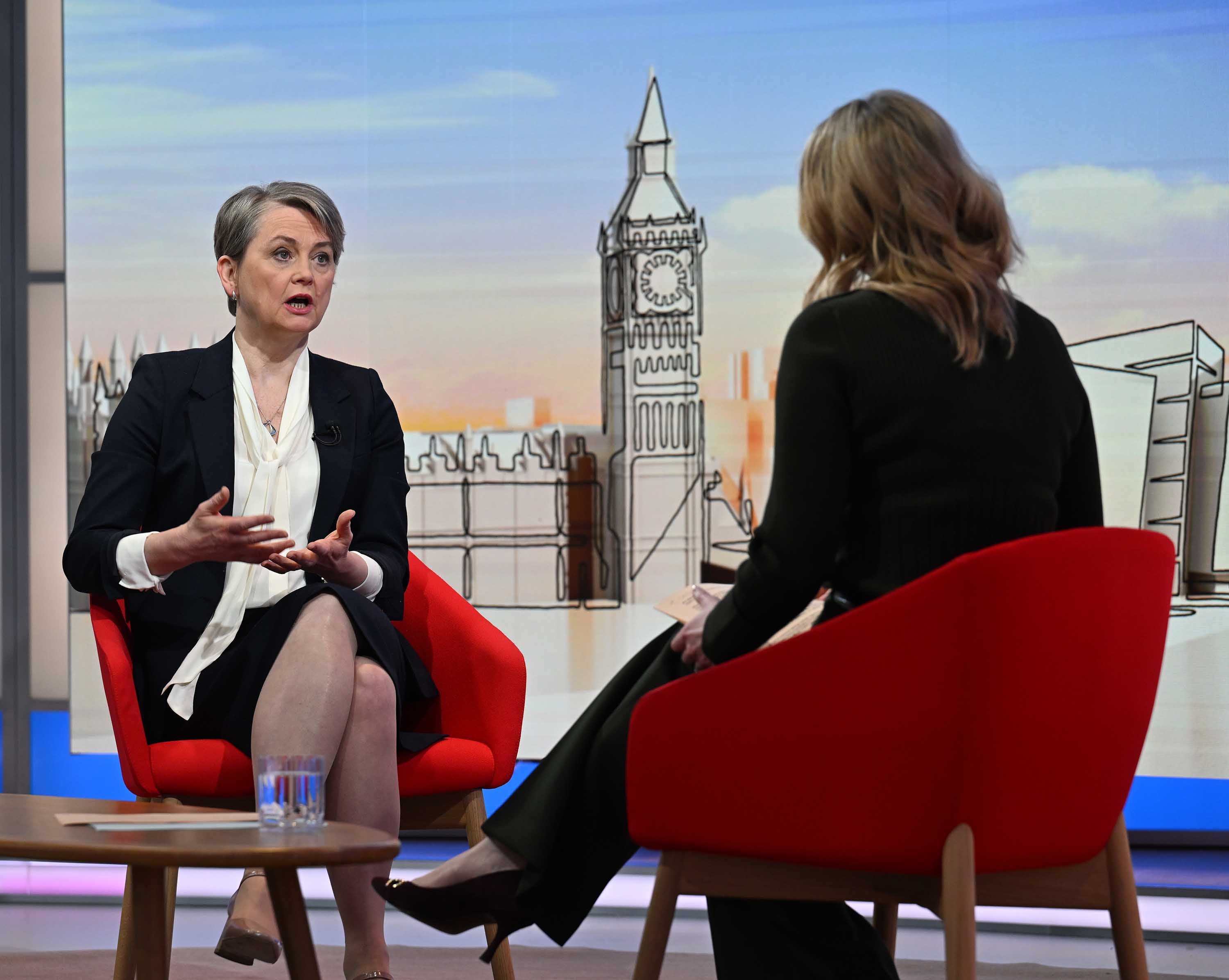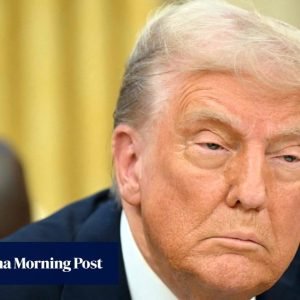
Donald Trump risks having a “really damaging impact” on the global economy as he pursues tariffs against the US’s nearest neighbours, Yvette Cooper has warned.
The US president has introduced a 25 per cent levy on goods coming from Mexico and Canada, and a 10 per cent trade tax on Chinese goods, which will come into effect on Tuesday. The penalties have sparked fears of a global trade war that could fuel a fresh spike in the cost of living.
Mr Trump has also previously threatened the EU with tariffs. On Sunday night, German chancellor Olaf Scholz said it was important not to divide with new trade barriers, while warning of possible retaliation from the bloc.

The UK home secretary, who was the first senior British government figure to respond to the announcement, said the UK wanted to break down trade barriers, not put them up.
Asked about Mr Trump’s announcement, she told the BBC’s Sunday with Laura Kuenssberg: “Tariff increases right across the world can have a really damaging impact on global growth and trade, so I don’t think it’s what anybody wants to see.”
Business secretary Jonathan Reynolds has previously said the government is ready for “all eventualities” if Mr Trump chooses to target the UK with tariffs. If the US does hit Britain, the UK could retaliate in the form of tariffs targeted at symbolically important US products, such as whiskey, blue jeans and motorbikes – hitting brands like Jack Daniel’s, Levi’s and Harley-Davidson – as Britain and the European Union did during trade wars in Mr Trump’s first term in the White House.
Canada and Mexico, the US’s nearest neighbours and largest trading partners, have both vowed to counter the levies with retaliatory tariffs of their own on US goods.

The US tariffs are aimed at forcing the countries into doing more to prevent illegal migration into America, as well as stopping the flow of the drug fentanyl.
Critics of the trade penalties have warned that they could also fuel inflation in the US economy, driving up prices.
Ms Cooper told the BBC that Britain’s focus was on “building trade links and better trading relationships, and removing barriers to trade, with the US and also with other European countries and with countries right across the world”.
“We want to reduce the barriers to trade, make it easier for businesses,” she added.
The government’s opponents have backed widely differing approaches to the threat that tariffs could also be placed on British goods.
While the Liberal Democrats have called for the UK to agree to enter a customs union with the EU, Conservative shadow business secretary Andrew Griffith said Sir Keir Starmer should pursue closer trade ties with the US.

The prime minister should be “diverting his plane” from Belgium – where he will meet EU leaders on Monday – to Washington DC, the senior Tory said.
Ministers have previously said they do not believe the US will impose tariffs on the UK, as America does not have a trade deficit with Britain.
Sir Keir, meanwhile, has insisted the UK does not need to make a choice between forging closer ties with Europe and doing so with the US.
Mr Trump has earlier also threatened the EU with tariffs but so far has not implemented them.
The chair of the European parliament’s foreign affairs committee, David McAllister, urged Mr Trump not to pursue a trade war with the bloc. “We have absolutely no interest in starting any kind of trade conflict,” he told Sky News.
Mr McAllister added: “We are engaging at all levels, trying to convince the Trump administration that in the end, imposing tariffs on the European Union would trigger retaliatory tariffs from our side – and this would be, in the end, a total lose-lose situation.”
On Sunday, during a visit to Sir Keir Starmer’s country estate, German chancellor Olaf Scholz said the bloc has “scope for action” as a major economic power, when asked about possible retaliation from the EU.
“We will try to continue economic relations together with the perspective of cooperation and collaboration,” he said.





